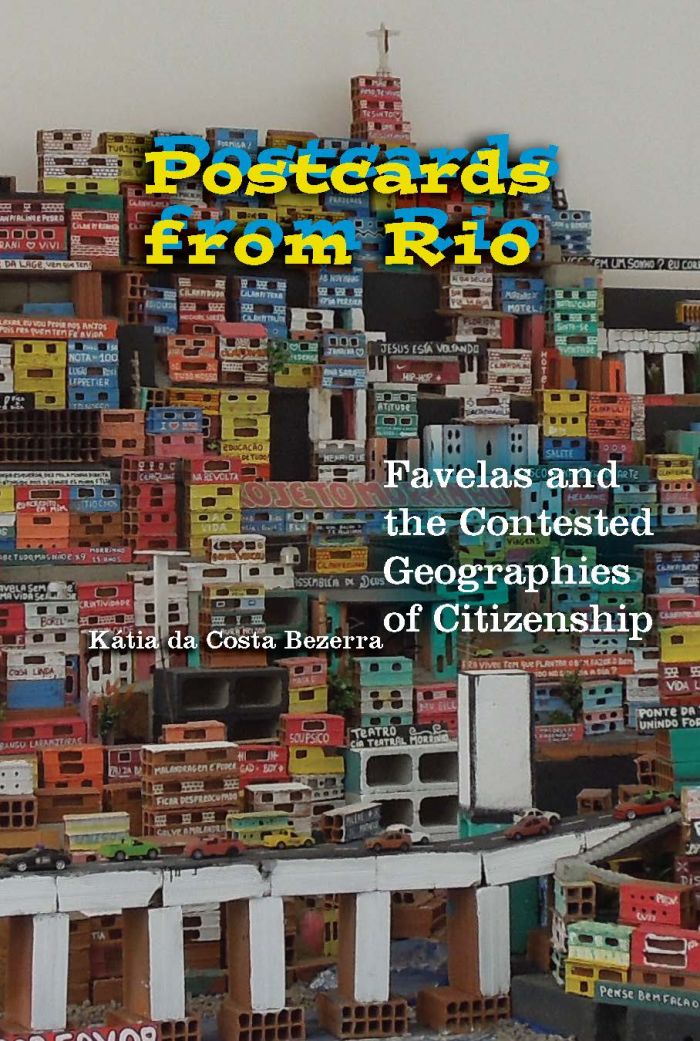Postcards from Rio
Favelas and the Contested Geographies of Citizenship

This book can be opened with

Through the analysis of a variety of favela-based visual cultural productions by young people and contemporary theorists, Postcards from Rio examines the complex relationship between citizenship and urban space in contemporary Rio de Janeiro.
By analyzing videos and photographs, Kátia da Costa Bezerra illustrates how citizens of favelas are reshaping their sense of belonging as subjects and as a legitimate part of the city. A groundbreaking study that examines more deeply the relationship between urban space, citizenship, and imagery originating in the favelas, Postcards from Rio sheds crucial light on how contemporary lenses are defining and mediating the meanings of space and citizenship as strategies of empowerment. The city emerges as a political space where multiplicities of perspectives are intertwined with demands for more inclusive forms of governance.
Studying important cultural works that trace shifting socioeconomic, cultural, and political patterns in Brazil in recent decades, da Costa Bezerra reveals the presence and importance of new sociocultural actors from Brazil's economically disenfranchised communities. A rare study that tackles the convergence between culture and human rights in present-day Brazil.——Leila Lehnen, University of New Mexico
“Postcards from Rio is an important contribution to the interdisciplinary field of scholarship on urban life in Rio. Da Costa Bezerra argues that favela-based cultural producers are engaging in forms of production that challenge the dominant narrative about favelas as violent, ‘backward’ places. By taking photographs and making films, murals, and fiction, they are both working against the hegemonic narratives of these communities and changing the internal imaginaries of what favelas are about for those who live in them.”——Erika Robb Larkins, University of Oklahoma

